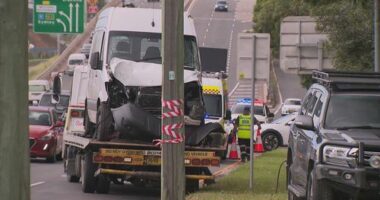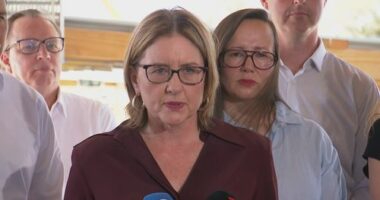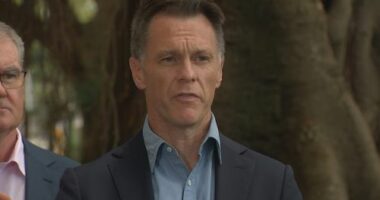Share this @internewscast.com
More than half a million permanent migrants in Australia are working below their skill level, despite concerns that widespread workforce shortages are impeding productivity.
It’s a topic of discussion this week, as 30 leaders from business, unions and civil society convene in Canberra to debate the country’s economic future.
Former Treasury secretary Martin Parkinson, who presented on skills at the roundtable this week, said there was agreement on the need for skilled workers, but how to achieve that remains a challenge.
“We’re focusing on breaking down the obstacles. Everyone at today’s roundtable recognized the advantages of developing improved systems for employees and the positive impact of skilled immigration. The real task lies in how to implement these ideas,” he stated.
Skilled migrant ‘mismatch’
In its submission to the roundtable, the Activate Australia’s Skills campaign has suggested that a national governance system for all overseas skills and qualifications recognition is needed.
Activate Australia’s Skills is an alliance campaign of businesses, unions, social services and community groups pushing a skills and qualifications recognition policy.
620,000 permanent migrants are currently working below their skill level in Australia, according to government figures.
Dane Moores is the head of strategic relations at Settlement Services International and is also the campaign manager for Activate Australia’s Skills.
He told SBS News migrants face a range of obstacles to finding employment.
“It’s what we call the migrant skills mismatch,” he said.
“Some of the barriers include a lack of local work experience, limited professional networks and social capital in some cases, language barriers, and in many cases, discrimination in the labour market.”
Moores said the group has a number of recommendations to improve the skills recognition process.
“We’re calling on the government to provide financial support for those migrants who can’t afford to go through the system. And secondly, to reduce information barriers by creating an online portal with all the information migrants need to get their skills and qualifications recognised.”
The organisation’s research has found Australia’s economy could grow by $9 billion every year or $25 million a day if the skills of migrants were put to better use.
There are currently 39 skilled migration assessing authorities approved to undertake assessments for 650 occupations, according to the Australian Council of Trade Unions (ACTU).
“Current skill assessment processes are expensive, complex, lack transparency, and prevent migrant workers from having equal employment opportunities,” the ACTU told SBS News in a statement.
“Countless individuals are being unfairly excluded from addressing skills shortages because of issues unrelated to their abilities: costly fees, cumbersome bureaucracy, and sluggish, perplexing procedures within the skills recognition framework.”
Critical sector hampered by ‘red tape’
Sectors that rely on engineers to support construction and infrastructure have been a focus of the roundtable.
Engineers Australia, which does skills recognition for overseas-born engineers, estimates that two-thirds of Australian-born engineers are working directly in engineering roles, compared with half of overseas-born engineers working in engineering roles.
The organisation says its recent research found some 47 per cent of migrant engineers actively seeking a job in the sector are unemployed.
“Engineers Australia welcomes efforts to make skills recognition clearer and more consistent, but it has to be profession-specific. Alongside recognising overseas qualifications, the real challenge is getting national harmony and consistency across states and territories,” Engineers Australia CEO Romilly Madew told SBS News.
Madew added that the government needs to address “the red tape” around licensing and registration between different states, to better realise the “full benefits” of the engineering workforce.
A spokesperson for the Skills and Training Minister, Andrew Giles, told SBS News the government is “already doing critical work”.
“Programs like Free TAFE have provided the opportunity for hundreds of thousands of people to upskill in areas where we need more workers – including in housing construction, nursing and aged care.
“On top of that, our Government’s Advanced Entry Trades Training program will see the skills of 6,000 people recognised.”













